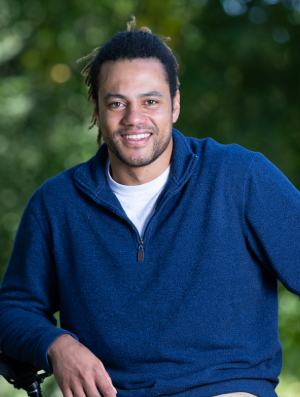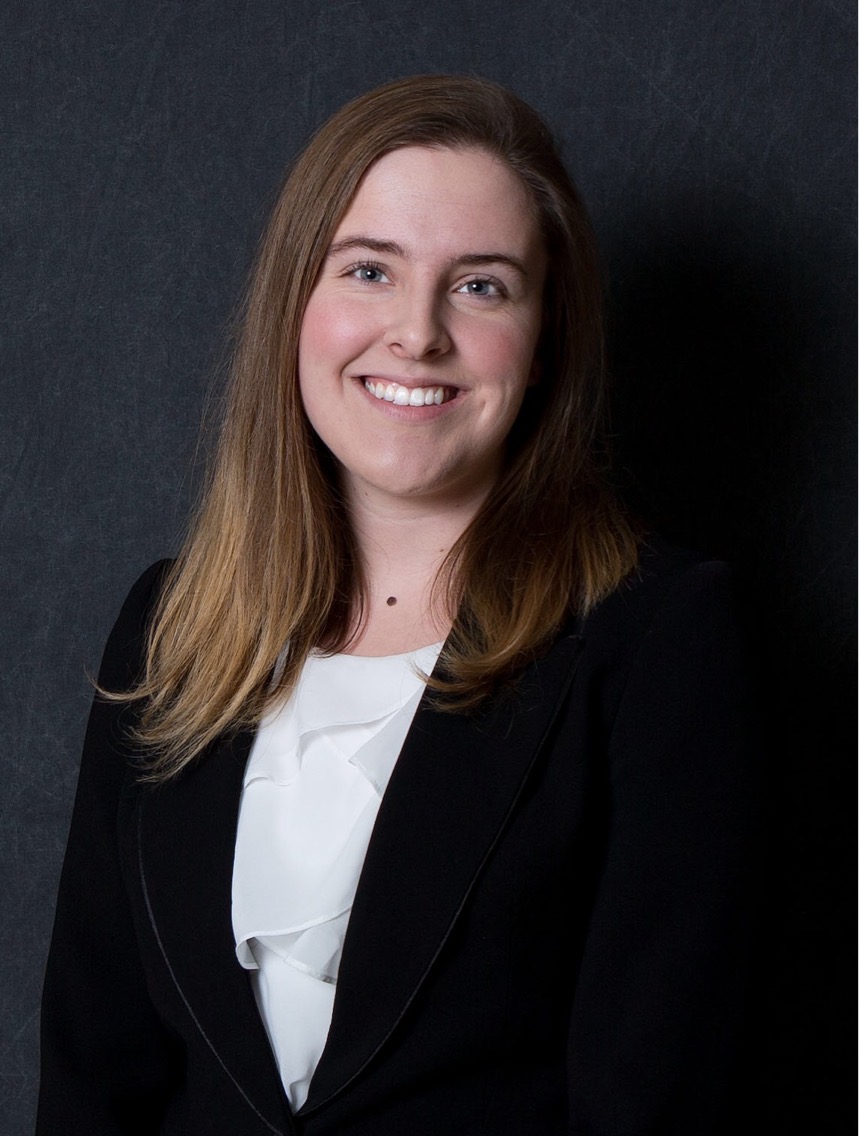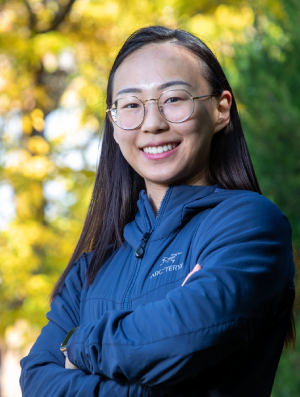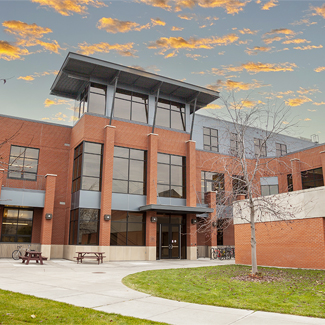Helping Montanans Access Justice
October 19, 2022
In fall 2020 the Blewett School of Law launched the Rural Justice Initiative at the University of Montana. RJI collaborates with local, State and Tribal stakeholders to support evidence-based criminal justice policy that integrates the needs and experiences of rural and indigenous communities. RJI offers an interdisciplinary criminal justice reform course, engages in applied research projects with community stakeholders, and provides skill-building opportunities to paid graduate research assistants. RJI is directed by Law Professor Jordan Gross, who co-teaches and co-supervises RJI Research Assistants with Dr. Laura Kirsch, Department of Psychology. RJI’s work is made possible through the generous support of the Angora Ridge Foundation. This year's cohort of student RAs comes from a variety of backgrounds, including psychology, mathematics, and law. By combining different areas of expertise, RJI explores creative solutions for areas with limited populations and resources.
RJI’s current project focuses on gaining a better understanding of pretrial release and detention decision-making in Montana trial courts, including judges’ use, perception and opinion of pretrial risk assessment tools. By relying on the strength of interdisciplinary inquiry, RJI aims to inform and guide future practices and decisions.
Here is a look at the 2021-2022 RJI cohorts:
 Sebastian Coombs
Sebastian Coombs
Coombs is a data science graduate student in the UM Department of Mathematical Sciences. Originally from Aurora, Colorado, he studied Geology and Geographical Information Systems at Fort Lewis College.
After a few years of working in the oil and gas industry, Coombs wanted to leave the city and moved to Missoula and started a job as a mapmaker for OnX maps. Around the same time, he started graduate school.
“I had been doing research within the math department about the application of machine learning in the criminal justice system – more specifically the building of models that can be used to find inequities in sentencing,” Coombs said.
While doing background research, he crossed paths with Professor Gross from the RJI.
“They needed a math person to help with some analysis,” he said. “It was a lucky coincidence I was also good at making maps. The research was complimentary to the projects I had been doing with the math department.”
“Our team has incredibly diverse backgrounds, and as a result our collaboration efforts have helped us come up with unique and exciting solutions to problems we couldn't have done on our own,” Coombs said. “This has been the most interdisciplinary team I have had an opportunity to work with. The experience of RJI has helped my understanding of the challenges facing communities in Montana from a lens I had never considered.”
The project has given Coombs skills he can take with him to future careers.
“Working with RJI has given me invaluable experience working with people well versed in a problem and using their knowledge to enhance and strengthen models that I create using the data in their fields,” he said “I will be able to apply my experience here to any industry I end up in.”
 Tori Hill
Tori Hill
Originally from Sidney, Montana, Hill is now a third-year law student. She studied biology and chemistry as an undergraduate, which led to a stint with the U.S. Department of Agriculture as a biological research assistant. After this position, Hill organized a senatorial campaign in eastern Montana, worked a presidential campaign in Illinois and ultimately moved back to Montana to intern at the Richland County Attorney’s Office before entering law school at UM.
“I felt the need to move back to Montana and be closer to my family again,” Hill said. “I decided to attend the University of Montana School of Law because of its focus on rurality, connecting people and place, and access to justice.
“Rural justice means understanding the needs of courts in rural Montana and ensuring all counties have the same access to justice as those in more urban cities, like Missoula,” Hill said. “This also means a cross-collaboration between rural and urban areas in Montana to find new and creative solutions to criminal justice problems such as access to mental health services, jail overcrowding and COVID-19.”
During Hill’s time with RJI, she focused on the data.
“We are currently collecting data and analyzing the results of a study on Montana judges’ practices and opinions regarding pretrial decision-making and the use of validated pretrial risk assessment tools,” she said. “This data is important because research shows that whether a defendant is released before their trial can have a huge impact on the outcome of their case. Counties in rural areas with smaller budgets have a monetary interest in keeping their jail population low.”
Hill enjoyed working with a team of people with diverse skillsets.
“We all share the same passion for fostering collaboration and increasing access to tools for criminal justice across Montana,” she said. “We learn from each other and solve problems collaboratively. The Rural Justice Initiative has provided me with invaluable information on pretrial sentencing tools. It gave me the opportunity to talk with judges across Montana, and I learned about what resources they need.
“I hope the knowledge and experience I have gained from RJI will allow me to be a better advocate for my future clients.”
 Gabriella Ji
Gabriella Ji
Ji is a fourth-year doctorate student in the clinical psychology program at UM. She is interested in trauma-informed care in clinical practice and in research.
Ji’s family is originally from Beijing, China, but she considers Seattle her hometown. Previous to her time at UM, she studied psychology and gender, women and sexuality studies at the University of Washington.
“I chose to come to the University of Montana because the program is small, but tightly knit,” Ji said. “Many professors’ research interests align with my own. I had taken the Interdisciplinary Criminal Justice Reform class with both Professor Kirsch and Professor Gross. I really enjoyed working with them and became interested in getting involved with the RJI project.”
A large part of Ji’s concentration is studying the impact of social justice and injustice on well-being. This project fit and expanded their area of interest and expertise.
”Current criminal justice reform initiatives in the U.S. focus primarily on urban jurisdictions,” she said. “Rarely do they include or mention rural and Indigenous populations. I really appreciate the bigger picture goal of RJI and its contribution to the criminal justice reform. I believe it will benefit all rural communities, including ours.”
The program helped Gabriella develop the tools needed for her career.
It helps me to learn, see and approach issues pertaining to social injustice from different perspectives,” Ji said. “This experience is invaluable for me to become a more clinically and culturally competent and humble scientist-practitioner in the future.”
